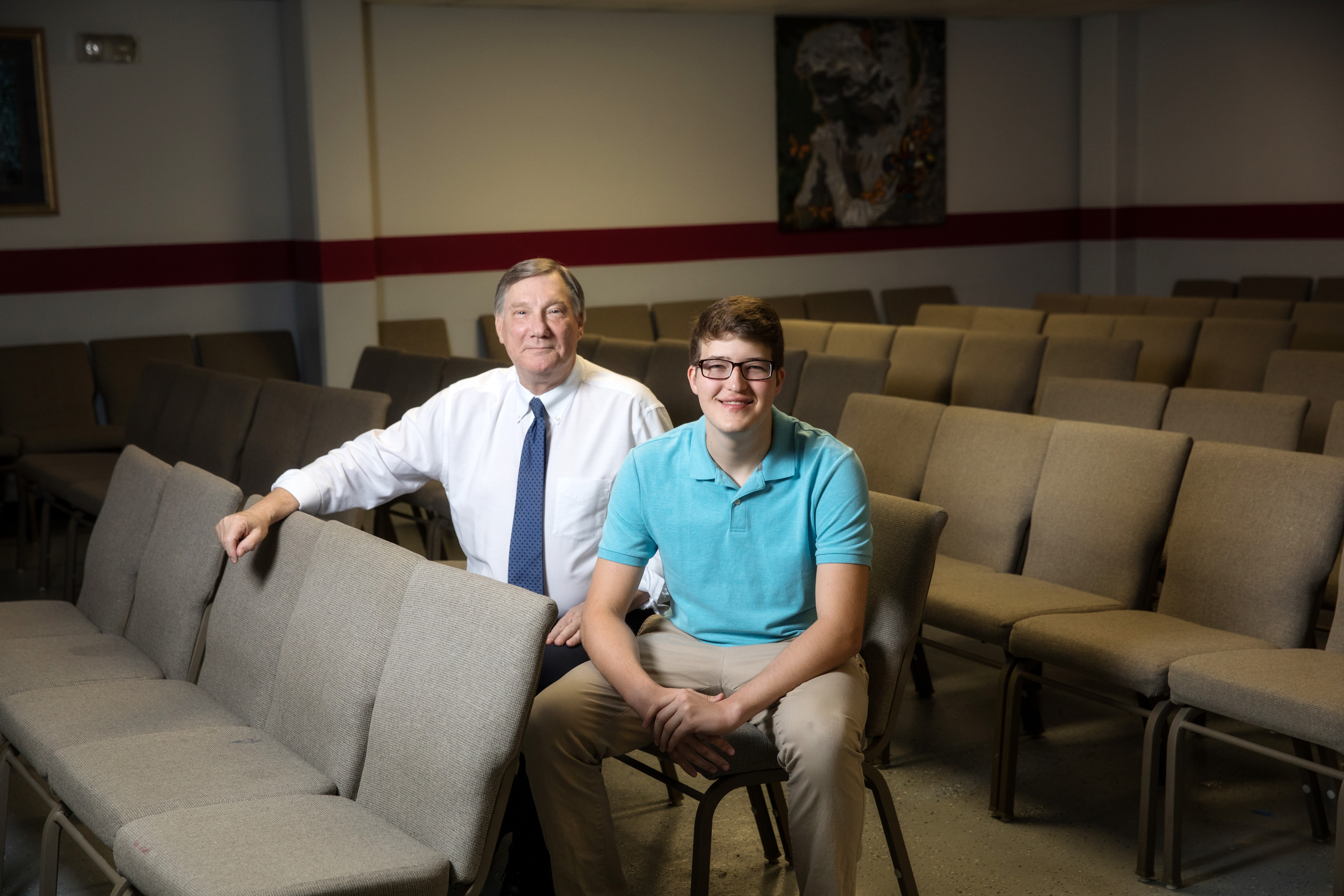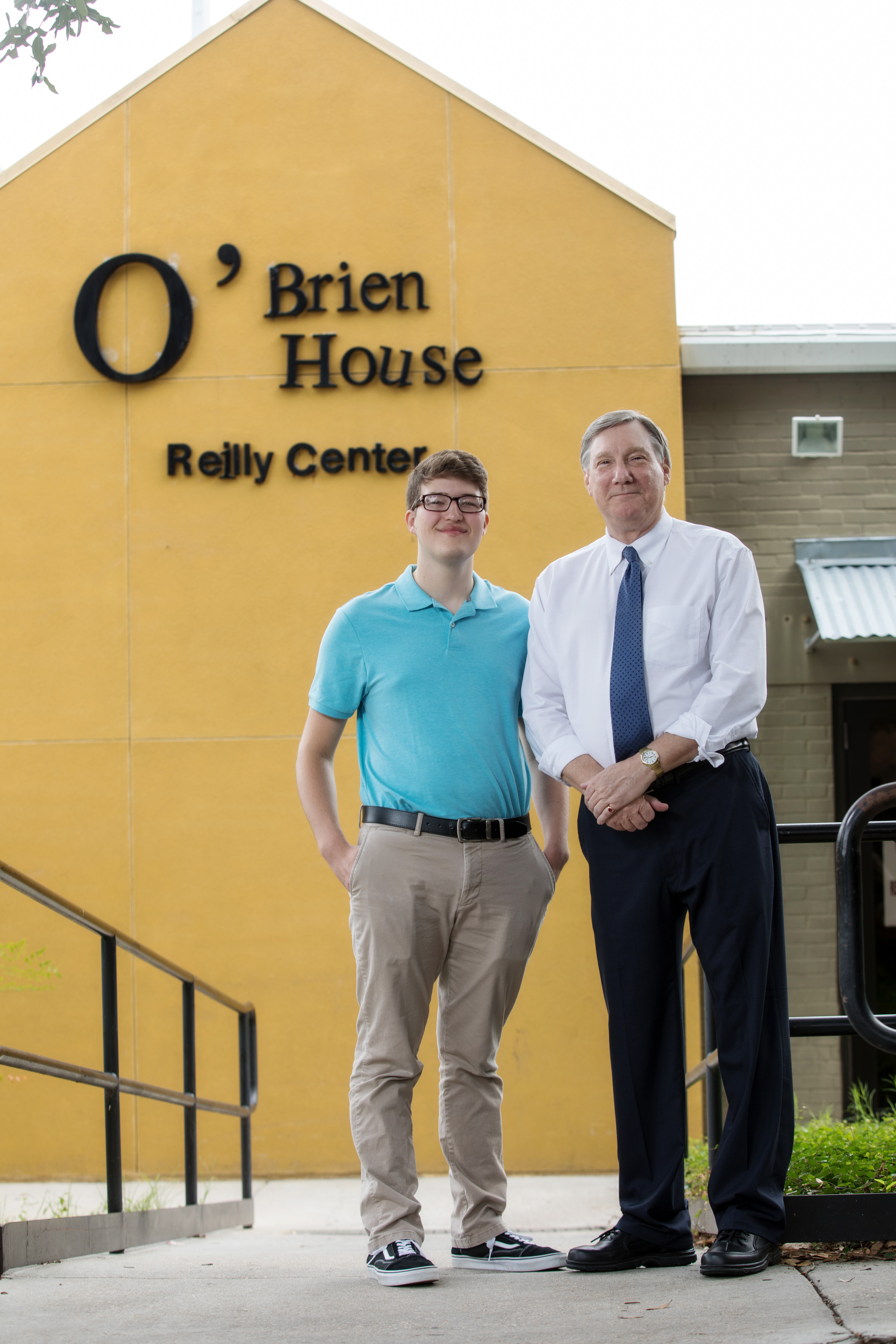
How the O’Brien House essay contest is breaking silence on addiction
It can be hard to understand addiction.
Garett Byrne, an 18-year-old who starts college at Northwestern University in the fall, explains it like this:
“It takes an iron grip on those who fall susceptible. It works its way into every facet of a victim’s life until it becomes all that he/she can think about. While drug addiction starts as a pursuit of a better high, it eventually becomes a necessity to simply maintain the body’s stasis. This biological dependency drags people to new lows to ensure their next fix. This I have witnessed firsthand.”
|
|
That’s the opening paragraph of the essay he wrote about his parents’ descent into addiction during his childhood. He describes their tumble from prescription painkillers to meth and their eventual incarceration.
In unflinching detail, he recounts his memories of crying in bed at his grandmother’s house. “About my parents not being home,” he explains. “About my parents not being in their right mind when they were home. About being alone.”
But Byrne’s story doesn’t end in tragedy. Both of his parents are now in recovery and rebuilding their lives, with his mother even working as a substance-abuse counselor. And his bruising story is what drives him to work even harder, to push for openness and honesty about addiction.
It’s also what helped him win an essay contest last year organized by local recovery center O’Brien House. O’Brien House facilitates residential treatment, outpatient care, prevention programs and other services, with an emphasis on preventive programs and early intervention—including working with local teens.

—Garett Byrne, 2018 graduate of Louisiana School for Math, Science,
and the Arts, and a winner of the O’Brien House essay contest last year
O’Brien House board member Amy Strother, who pitched and organized the first competition for high school students last year, also has some firsthand experience. She’s lost two sisters, one to suicide and one to overdose, and she had several loved ones go through O’Brien House even before she joined the board.
She started the contest as a way to create a dialogue with youth in the community about addiction and how widespread its effects are. After the success of its first year, the contest will expand this year to include essays written by both teens and adults, though young people remain the focus.
“One of the key misperceptions in the community about addiction and drug use is [that] people don’t understand how early it begins,” Strother says. “To really combat the problem, you have to talk to youth very, very early.”
It starts with visiting local schools and talking to teens face-to-face, as well as educating parents of addicted teens about supporting their recovery. And with O’Brien House’s essay competition, young people are invited to tell their own stories of how addiction has gotten its hands on their lives.
“When I saw the essay prompt, I felt I had some insight I could share,” says Byrne, who is a 2018 graduate of Louisiana School for Math, Science, and the Arts. His words are as carefully chosen in speech as they are in his essay—clear and methodical. “There are so many misconceptions about how drugs affect people in the world. We have people who are punished for doing drugs; they’re given very little support. If people saw it as a disease rather than a failure of will, maybe less people would suffer from addiction.”
A big part of the picture, says O’Brien House Executive Director Todd Hamilton, is combating the stigma that isolates people touched by addiction—especially young people.
“Parents want to protect their children from dangerous knowledge. Young people don’t want parents to be aware how much they already know,” Hamilton says. “The essay contest is a way to unveil these hidden fears and create a safe conversation about the impact of addiction on young people … and frankly, we have a lot to learn from the fearless candor of the youth.”
The work O’Brien House does isn’t easy—funding is hard to come by, and they need the resources for comprehensive rehabilitation, from breaking habits to managing a savings account. Right now, the facility in Downtown East is in need of a new roof. But when a community is reluctant to talk about addiction, it can be hard to convince people to help fund the center. That’s where an open conversation can help.
“The past cannot be changed, and dwelling on it is wasted energy,” Byrne wrote in his essay. “Be smart in the present and work for a better future. There is only so much in the world that we can change, but what we do change needs to be for the better. Even when you think you have failed, you need to pick yourself back up and keep going. No life worth living is without failure.”
CELEBRATE THE WINNERS
Youth winners receive up to a $1,000 scholarship, while first place for adults in recovery wins $250. Though this year’s contest closes submissions Sept. 1, you can read last year’s winners at the contest website and see the new round of winners at the annual O’Brien House breakfast Sept. 21, which is open to the public. obrienhouseessays.com
This article was originally published in the September 2018 issue of 225 Magazine.
|
|
|
